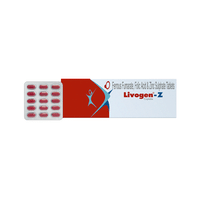Rs.40.70for 1 bottle(s) (10 ml Eye/Ear Drops each)
food interaction for Ciprochem B
alcohol interaction for Ciprochem B
pregnancy interaction for Ciprochem B
lactation interaction for Ciprochem B
food
alcohol
pregnancy
lactation
No interaction found/established
No interaction found/established
Information regarding the use of Ciprochem B Eye/Ear Drops during pregnancy is not available. Please consult your doctor.
CONSULT YOUR DOCTOR
Information regarding the use of Ciprochem B Eye/Ear Drops during breastfeeding is not available. Please consult your doctor.
CONSULT YOUR DOCTOR
SALT INFORMATION FOR Ciprochem B
Ciprofloxacin(0.3% w/v)
Uses
Ciprofloxacin is used in the treatment of bacterial infections. It is also used in infections of urinary tract, tonsils, sinus, nose, throat, female genital organ, skin and soft tissues and lungs (pneumonia).
How it works
Ciprofloxacin is an antibiotic. It works by stopping the action of a bacterial enzyme called DNA-gyrase. This prevents the bacterial cells from dividing and repairing, thereby killing them.
Common side effects
Headache, Dizziness, Gastrointestinal disorder, Joint pain, Urticaria, Constipation, Coughing up blood, Psychosis, Hallucination, Blood disorder, Hepatitis (viral infection of liver), Neurotoxicity, Tendonitis, Prolonged QT interval, Hemorrhagic cystitis, Anaphylactic reaction, Toxic epidermal necrolysis, Angioedema (swelling of deeper layers of skin), Anaphylactic shock, Exfoliative dermatitis, Stevens-Johnson syndrome
Betamethasone(0.1% w/v)
Uses
Betamethasone is used in the treatment of allergic conditions.
How it works
Betamethasone is a steroid which works by blocking the production of certain chemical messengers in the body that cause inflammation (redness and swelling) and allergies.
Common side effects
Weight gain, Mood changes, Behavioral changes, Skin infection, Hair follicle inflammation, Itching, Burning sensation, Cataract, Increased glucose level in blood, Bruising, Headache, Dizziness, Weakness, Fatigue, Visual disturbance, Nausea, Altered menstrual cycle, Impaired wound healing, Dryness, Stretch marks, Hypertrichosis (excessive hair growth), Skin atrophy, Miliaria (sweat rash), Perioral dermatitis, Allergic contact dermatitis, Hypopigmentation, Local site pain, Angioedema (swelling of deeper layers of skin), Decreased potassium level in blood, Hypersensitivity, Blindness, Pulmonary edema, Rebound effect, Cushing syndrome, Glycosuria, Glaucoma, Slow heart rate, Cardiac arrest, Arrhythmia (irregular heartbeats), Cushingoid syndrome, Perforated peptic ulcer, Pathologic fracture of long bones, Hypothalamic-pituitary-adrenal axis suppression, Charcot-like arthropathy, Steroid myopathy
SUBSTITUTES FOR Ciprochem B
No substitutes foundExpert advice FOR Ciprochem B
- Your doctor has prescribed Ciprofloxacin to cure your infection and improve symptoms.
- Do not skip any doses and finish the full course of treatment even if you feel better.
- Discontinue Ciprofloxacin and inform your doctor immediately if you get a rash, itchy skin, swelling of face and mouth, or have difficulty in breathing.
- Diarrhea may occur as a side effect but should stop when your course is complete. Inform your doctor if it doesn't stop or if you find blood in your stools.
- Notify your doctor if you feel pain in your tendons, numbness, or tingling sensations.
- Inform your doctor if you are pregnant or planning to conceive or breastfeeding.
Frequently asked questions FOR Ciprochem B
Ciprofloxacin
Q. Is Ciprofloxacin safe?
Ciprofloxacin is a relatively safe drug. However, it is not devoid of side effects and hence should only be taken if prescribed by a doctor in the appropriate dose, frequency, and duration as advised.
Q. Can the use of Ciprofloxacin cause diarrhea?
Yes, the use of Ciprofloxacin can cause diarrhea. It is an antibiotic which kills the harmful bacteria. However, it also affects the helpful bacteria in your stomach or intestine and causes diarrhea. If you are experiencing severe diarrhea, talk to your doctor about it.
Q. Can I stop taking Ciprofloxacin when I feel better?
No, do not stop taking Ciprofloxacin and complete the full course of treatment even if you feel better. Your symptoms may improve before the infection is completely cured.
Betamethasone
Q. How does Betamethasone work?
Betamethasone works by decreasing the inflammation caused by allergies. It reduces inflammation by blocking the release of certain natural substances that cause allergic symptoms such as swelling, redness, and pain.
Q. Is Betamethasone safe to use?
Betamethasone is safe to use when used in the dose and duration advised by your doctor. You should not take this medicine if you are allergic to Betamethasone or any of the other ingredients of this medicine. Furthermore, you should not take Betamethasone if you have an infection and have not yet started medicine (e.g., antibiotics) to treat it.
Q. Does Betamethasone cause hair loss?
No, Betamethasone is not known to cause hair loss. In fact, it may cause an increase in body hair growth (especially in females) on long-term use. Talk to your doctor if you get excessive hair growth on your body while taking Betamethasone.






















